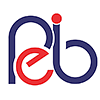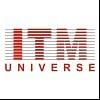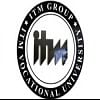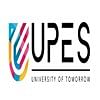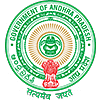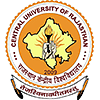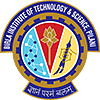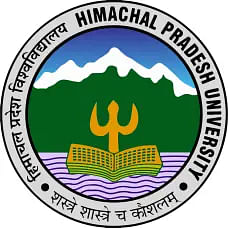Table of Contents
The Gujarat PGCET 2024 syllabus is an important section that a candidate needs to look through before appearing for the Gujarat PGCET 2024 exam. Applicants need to be well prepared before attending the exam. Here are all the details which will help you to get an in-depth overview of the syllabus section.
Gujarat PGCET 2024 Syllabus Highlights
The candidate must focus on the following syllabus to get an idea regarding the topics to be covered. Gujarat PGCET 2024 Syllabus contains topics that are mandatory to be referred to before giving the examination. Applicants should also refer to the exam pattern of Gujarat PGCET 2024 to be well prepared for the exam. The Gujarat PGCET 2024 syllabus is provided below.
Gujarat PGCET 2024 Mechanical Engineering Syllabus
Mechanical engineering syllabus consists of different topics and subtopics and aspirants who are willing to give exam-related with Mechanical Engineering need to undergo the following sections:
Engineering Mathematics
Topics covered under Engineering Mathematics are prescribed below:
- Linear Algebra: Matrix algebra, Systems of linear equations, Eigenvalues and eigenvectors.
- Calculus: Functions of a single variable, Limit, continuity and differentiability, Mean value theorems, Evaluation of definite and improper integrals, Partial derivatives, Total derivative, Maxima and minima, Gradient, Divergence and Curl, Vector identities, Directional derivatives, Line, Surface and Volume integrals, Stokes, Gauss and Green’s theorems.
- Differential equations: First order equations (linear and nonlinear), Higher order linear differential equations with constant coefficients, Cauchy’s and Euler’s equations, Initial and boundary value problems, Laplace transforms, Solutions of one-dimensional heat and wave equations and Laplace equation.
- Complex variables: Analytic functions, Cauchy’s integral theorem, Taylor and Laurent series.
- Probability and Statistics: Definitions of probability and sampling theorems, Conditional probability, Mean, median, mode and standard deviation, Random variables, Poisson, Normal and Binomial distributions.
- Numerical Methods: Numerical solutions of linear and non-linear algebraic equations Integration by trapezoidal and Simpson’s rule, single and multi-step methods for differential equations.
Applied Mechanics and Design
Topics covered under Applied Mechanics and design are specified below:
- Engineering Mechanics: Free body diagrams and equilibrium; trusses and frames; virtual work; kinematics and dynamics of particles and rigid bodies in plane motion, including impulse and momentum (linear and angular) and energy formulations; impact.
- Strength of Materials: Stress and strain, stress-strain relationship and elastic constants, Mohr’s circle for plane stress and plane strain, thin cylinders; shear force and bending moment diagrams; bending and shear stresses; deflection of beams; torsion of circular shafts; Euler’s theory of columns; strain energy methods; thermal stresses.
- Theory of Machines: Displacement, velocity and acceleration analysis of plane mechanisms, dynamic analysis of slider-crank mechanism, gear trains; flywheels.
- Vibrations: Free and forced vibration of single degree of freedom systems; effect of damping; vibration isolation; resonance, critical speeds of shafts.
- Design: Design for static and dynamic loading; failure theories; fatigue strength and the S-N diagram; principles of the design of machine elements such as bolted, riveted and welded joints, shafts, spur gears, rolling and sliding contact bearings, brakes and clutches.
- Balancing of machines: Reciprocating and rotary masses. Inline engine, V-engine.
Fluid Mechanics and Thermal Sciences
Topics covered under Fluid Mechanics and Thermal Sciences are specified below:
- Fluid Mechanics: Fluid properties- fluid statics, manometry, buoyancy, control-volume analysis of mass, momentum and energy, fluid acceleration, differential equations of continuity and momentum, Bernoulli’s equation, viscous flow of incompressible fluids, boundary layer, elementary turbulent flow, flow through pipes, head losses in pipes, bends etc.
- Heat-Transfer: Modes of heat transfer, one-dimensional heat conduction, resistance concept, electrical analogy, unsteady heat conduction, fins, dimensionless parameters in free and forced convective heat transfer, various correlations for heat transfer in flow over flat plates and through pipes, thermal boundary layer, the effect of turbulence, radiative heat transfer, black and grey surfaces, shape factors, network analysis, heat exchanger performance, LMTD and NTU methods.
- Thermodynamics: First and Second laws of thermodynamics, thermodynamic system and processes, Carnot cycle. Irreversibility and availability, the behaviour of ideal and real gases, properties of pure substances, calculation of work and heat in ideal processes, analysis of thermodynamic cycles related to energy conversion.
Applications:
- Power Engineering: Steam Tables, Rankine, Brayton cycles with regeneration and reheat.
- C. Engines: air-standard Otto, Diesel cycles.
- Refrigeration and air-conditioning: Vapour refrigeration cycle, heat pumps, gas refrigeration, Reverse Brayton cycle; moist air: psychrometric chart, basic psychrometric processes.
- Turbomachinery: Pelton-wheel, Francis and Kaplan turbines, impulse and reaction principles, velocity diagrams.
Manufacturing and Industrial Engineering
Topics covered under Manufacturing and Industrial Engineering are specified below:
- Engineering Materials: Structure and properties of engineering materials, heat treatment, stress-strain diagrams for engineering materials.
- Metal Casting: Design of patterns, moulds and cores; solidification and cooling; riser and gating design, design considerations.
- Forming: Plastic deformation and yield criteria; fundamentals of hot and cold working processes; load estimation for bulk (forging, rolling, extrusion, drawing) and sheet (shearing, deep drawing, bending) metal forming processes; principles of powder metallurgy.
- Joining: Physics of welding, brazing and soldering; adhesive bonding, design considerations in welding. Arc welding, Spot welding, Submerged arc welding, TIG, MIG, Gas welding.
- Machining and Machine Tool Operations: Mechanics of machining, single and multi-point cutting tools, tool geometry and materials, tool life and wear; economics of machining, principles of non-traditional machining processes; principles of work holding, principles of design of jigs and fixtures.
- Metrology and Inspection: Limits, fits and tolerances; linear and angular measurements; comparators; gauge design; interferometry; form and finish measurement; alignment and testing methods; tolerance analysis in manufacturing and assembly.
- Computer-Integrated Manufacturing: Basic concepts of CAD/CAM and their integration tools.
- Production Planning and Control: Forecasting models, aggregate production planning, scheduling, materials requirement planning.
- Inventory Control: Deterministic and probabilistic models; safety stock inventory control systems.
- Operations Research: Linear programming, simplex and duplex method, transportation, assignment, network flow models, simple queuing models, PERT and CPM.
Gujarat PGCET 2024 Syllabus for Civil Engineering
Topics covered under Gujarat 2024 Syllabus for Civil Engineering are specified as below:
Engineering Mathematics
- Linear Algebra: Matrix algebra, Systems of linear equations, Eigenvalues and eigenvectors.
- Calculus: Functions of a single variable, Limit, continuity and differentiability, Mean value theorems, Evaluation of definite and improper integrals, Partial derivatives, Total derivative, Maxima and minima, Gradient, Divergence and Curl, Vector identities, Directional derivatives, Line, Surface and Volume integrals, Stokes, Gauss and Green’s theorems.
- Differential equations: First order equations (linear and nonlinear), Higher order linear differential equations with constant coefficients, Cauchy’s and Euler’s equations, Initial and boundary value problems, Laplace transforms, Solutions of one-dimensional heat and wave equations and Laplace equation.
- Complex variables: Analytic functions, Cauchy’s integral theorem, Taylor, and Laurent series.
- Probability and Statistics: Definitions of probability and sampling theorems, Conditional probability, Mean, median, mode and standard deviation, Random variables, Poisson, Normal and Binomial distributions.
- Numerical Methods: Numerical solutions of linear and nonlinear algebraic equations Integration by trapezoidal and Simpson’s rule, single and multi-step methods for differential equations.
Gujarat PGCET 2024 Structural Engineering Syllabus
Applicants who are willing to give the exam-related with structural engineering need to follow syllabus structure as specified below:
- Mechanics: Bending moment and shear force in statically determinate beams. Simple stress and strain relationship: Stress and strain in two dimensions, principal stresses, stress transformation, Mohr’s circle- Simple bending theory, flexural and shear stresses, unsymmetrical bending, shear centre. Thin-walled pressure vessels, uniform torsion, buckling of column, combined and direct bending stresses.
- Structural Analysis: Analysis of statically determinate trusses, arches, beams, cables and frames, displacements in statically determinate structures and analysis of statically indeterminate structures by force/energy methods, analysis by displacement methods (slope deflection and moment distribution methods), influence lines for determinate and indeterminate structures. Basic concepts of matrix methods of structural analysis.
- Concrete Structures: Concrete Technology- properties of concrete, basics of mix design, Concrete design- basic working stress and limit state design concepts, analysis of ultimate load capacity and design of members subjected to flexure, shear, compression, and torsion by limit state methods, Basic elements of prestressed concrete, analysis of beam sections at transfer and service loads.
- Steel Structures: Analysis and design of tension and compression members, beams and beam-columns, column bases. Connections- simple and eccentric, beam-column connections, plate girders and trusses. Plastic analysis of beams
Gujarat 2024 Geotechnical Engineering Syllabus
Syllabus for Geotechnical engineering is given below:
- Soil Mechanics: Origin of soils, soil classification, three-phase system, fundamental definitions, relationship and interrelationships, permeability & seepage, effective stress principle, consolidation, compaction, shear strength.
- Foundation Engineering: Sub-surface investigations- scope, drilling boreholes, sampling, penetration tests, plate load test. Earth pressure theories, the effect of the water table, layered soils. Stability of slopes-infinite slopes, finite slopes. Foundation types-foundation design requirements. Shallow foundations-bearing capacity, the effect of shape, water table, and other factors, stress distribution, settlement analysis in sands & clays. Deep foundation pile types, dynamic & static formulae, the load capacity of piles in sands & clays, negative skin friction.
Gujarat PGCET 2024 Water Resources Engineering
Topics present in Water Resource Engineering as prescribed below:
- Fluid Mechanics and Hydraulics: Properties of fluids, the principle of conservation of mass, momentum, energy and corresponding equations, potential flow, applications of momentum and Bernoulli’s equation, laminar and turbulent flow, flow in pipes, pipe networks. Concept of boundary layer and its growth, Uniform flow, critical flow and gradually varied flow in channels, specific energy concept, hydraulic jump, Forces on immersed bodies, flow measurements in channels, tanks and pipes. Dimensional analysis and hydraulic modelling. Kinematics of flow, velocity triangles and specific speed of pumps and turbines.
- Hydrology: Hydrologic cycle, rainfall and its measurement, evaporation, infiltration, stage-discharge relationships, unit hydrographs, flood estimation, reservoir capacity, reservoir and channel routing. Well, hydraulics.
- Irrigation: Duty, delta, estimation of evapotranspiration. Crop water requirements. Design of: lined and unlined canals, canal regulation structure, waterways, headworks, gravity dams, earthen dam and spillways, Design of weirs on permeable foundation, Types of an irrigation system, irrigation methods. Waterlogging and drainage, sodic soils.
Gujarat PGCET 2024 Environmental Engineering Syllabus
Topics under Gujarat PGCET Environmental Engineering Syllabus consists of the following:
- Water requirements: Quality standards, basic unit processes and operations for water treatment, Drinking water standards, water requirements, basic unit operations and unit processes for surface water treatment, distribution of water, Sewage and sewerage treatment, quantity and characteristics of wastewater, Primary, secondary and tertiary treatment of wastewater, sludge disposal, effluent discharge standards. Domestic wastewater treatment, characteristics of domestic wastewater, primary and secondary treatment Unit operations and unit processes of domestic wastewater, sludge disposal.
- Air Pollution: Types of pollutants, their sources and impacts, air pollution meteorology, air pollution control, air quality standards and limits.
- Municipal Solid Wastes: Characteristics, generation, collection and transportation of solid wastes, engineered systems for solid waste management (reuse/ recycle, energy recovery, treatment and disposal).
- Noise Pollution: Impacts of noise, permissible limits of noise pollution, measurement of noise and control of noise pollution.
Gujarat PGCET Syllabus for Transportation Engineering 2024
Topics involved under Transportation Engineering which candidates need to follow are prescribed as below:
- Highway Planning: Geometric design of highways, testing and specifications of paving materials, the design of flexible and rigid pavements.
- Traffic Engineering: Traffic characteristics, the theory of traffic flow, intersection design, traffic signs and signal design, highway capacity.
- The basic concept of AirPort: Planning, Runway design, Harbour and railways.
Surveying
- Importance of surveying, principles and classifications, mapping concepts, coordinate system, map projections, measurements of distance and directions, levelling, theodolite traversing, plane table surveying, errors and adjustments, curves.
Gujarat PGCET 2024 Syllabus for Electronics and Communication Engineering
Topics covered under Gujarat PGCET 2024 Syllabus for Electronics and Communication Engineering is prescribed as below:
Engineering Mathematics
- Linear Algebra: Matrix algebra, Systems of linear equations, Eigenvalues and eigenvectors.
- Calculus: Functions of a single variable, Limit, continuity and differentiability, Mean value theorems, Evaluation of definite and improper integrals, Partial derivatives, Total derivative, Maxima and minima, Gradient, Divergence and Curl, Vector identities, Directional derivatives, Line, Surface and Volume integrals, Stokes, Gauss and Green’s theorems.
- Differential equations: First order equations (linear and nonlinear), Higher order linear differential equations with constant coefficients, Cauchy’s and Euler’s equations, Initial and boundary value problems, Laplace transforms, Solutions of one-dimensional heat and wave equations and Laplace equation.
- Complex variables: Analytic functions, Cauchy’s integral theorem, Taylor and Laurent series.
- Probability and Statistics: Definitions of probability and sampling theorems, Conditional probability, Mean, median, mode and standard deviation, Random variables, Poisson, Normal and Binomial distributions.
- Numerical Methods: Numerical solutions of linear and non-linear algebraic equations Integration by trapezoidal and Simpson’s rule, single and multi-step methods for differential equations.
Electronics and Communication Topics
Topics covered under Electronics and Communication which aspirants need to follow before commencing for the exam are as follows:
- Networks: Network graphs: matrices associated with graphs; incidence, fundamental cut set and fundamental circuit matrices, Solution methods: nodal and mesh analysis. Network theorems: superposition, The venin and Norton’s maximum power transfer, Wye-Delta transformation. Steady-state sinusoidal analysis using phasors, Linear constant coefficient differential equations, time-domain analysis of simple RLC circuits, Solution of network equations using Laplace transform: frequency domain analysis of RLC circuits, 2-port network parameters: driving point and transfer functions. State equations for networks.
- Electronic Devices: Energy bands in silicon, intrinsic and extrinsic silicon, Carrier transport in silicon: diffusion current, drift current, mobility, and resistivity, Generation and recombination of carriers, p-n junction diode, Zener diode, tunnel diode, BJT, JFET, MOS capacitor, MOSFET, LED, pin and avalanche photodiode, Basics of LASERs, Device technology: integrated circuits fabrication process, oxidation, diffusion, ion implantation, photolithography, n-tub, p-tub and twin-tub CMOS process.
- Analog Circuits: Small Signal Equivalent circuits of diodes, BJT, MOSFETs and analogue CMOS, Simple diode circuits, clipping, clamping, rectifier. Biasing and bias stability of transistor and FET amplifier, Amplifiers: single-and multi-stage, differential and operational, feedback, and power. The frequency response of amplifiers, Simple op-amp circuits, Filters, Sinusoidal oscillators; criterion for oscillation, single-transistor and op-amp configurations, Function generators and wave-shaping circuits, 555 Timers. Power supplies.
- Digital circuits: Boolean algebra, minimization of Boolean functions; logic gates, digital IC families (DTL, TTL, ECL, MOS, CMOS), Combinatorial circuits: arithmetic circuits, code converters, multiplexers, decoders, PROMs and PLAs. Sequential circuits: latches and flip-flops, counters and shift registers. Sample and hold circuits, ADCs, DACs, Semiconductor memories. The microprocessor (8085): architecture, programming, memory and I/O interfacing.
- Signals and Systems: Definitions and properties of Laplace transform, continuous-time and discrete-time Fourier series, continuous-time and discrete-time Fourier Transform, DFT and FFT, z-transform. Sampling theorem, Linear Time-Invariant (LTI) Systems: definitions and properties, causality, stability, impulse response, convolution, poles and zeros, parallel and cascade structure, frequency response, group delay, phase delay, Signal transmission through LTI systems.
- Control Systems: Basic control system components, block diagrammatic description, reduction of block diagrams. Open-loop and closed-loop (feedback) systems and stability analysis of these systems. Signal flow graphs and their use in determining transfer functions of systems, transient and steady-state analysis of LTI control systems and frequency response, Tools and techniques for LTI control system analysis, root loci, Routh-Hurwitz criterion, and Bode and Nyquist plots.
- Electronic Measurements and instrumentation: Basic concepts, standards and error analysis, Measurements of basic electrical quantities and parameters, Electronic measuring instruments and their principles of working: analogue and digital, comparison, characteristics, application, Transducers, Electronic measurements of non-electrical quantities like temperature, pressure, humidity etc basics of telemetry for industrial use.
- Electromagnetics: Elements of vector calculus, divergence and curl, Gauss’ and Stokes’ theorems, Maxwell’s equations: differential and integral forms, Wave equation, pointing vector. Plane waves: propagation through various media; reflection and refraction, phase and group velocity, skin depth. Transmission lines: characteristic impedance, impedance transformation, Basics of Antennas: Dipole antennas, radiation pattern, antenna gain.
- Communications: Random signals and noise: probability, random variables, probability density function, autocorrelation, power spectral density. Analog communication systems: amplitude and angle modulation and demodulation systems, spectral analysis of these operations, superheterodyne receivers; elements of hardware, realizations of analogue communication systems, signal-to-noise ratio (SNR) calculations for amplitude modulation (AM) and frequency modulation (FM) for low noise conditions, Fundamentals of information theory and channel capacity theorem.
- Digital communication systems: Pulse code modulation (PCM), differential pulse code modulation (DPCM), digital modulation schemes: amplitude, phase and frequency shift keying schemes (ASK, PSK, FSK), matched filter receivers, bandwidth consideration and the probability of error calculations for these schemes. Basics of TDMA, FDMA and CDMA and GSM. Fundamentals of Wireless Propagation environment, Colour TV Transmission & reception systems, Basics of DTH, HDTV, Plasma & LCD, Optical sources, detectors, fibres, optical network components, optical measurements, basics of optical networks.
- Microwave Engineering: Microwave Tubes and solid-state devices, Microwave generation and amplifiers, Waveguides and other Microwave Components and Circuits, Microstrip circuits, Microwave Antennas, Microwave Measurements, Masers, lasers; Microwave propagation. Microwave Communication Systems terrestrial and Satellite-based.
- Computer Engineering: Number Systems. Data representation; Programming; Elements of a high-level programming language C/C++; Use of basic data structures; Fundamentals of computer architecture; Processor design; Control unit design; Memory organisation, I/o System Organization. Microprocessors: Architecture and instruction set of Microprocessors 8085 and 8086, Assembly language Programming.
- Microprocessor-based system design: typical examples, Personal computers and their typical uses, Microcontroller 8051 family Architecture, programming and interface.
Gujarat PGCET 2024 Syllabus for Electrical Engineering
Topics covered under Gujarat PGCET 2024 Syllabus for Electrical Engineering is given below:
- Linear Algebra: Matrix algebra, Systems of linear equations, Eigenvalues and eigenvectors.
- Calculus: Functions of a single variable, Limit, continuity and differentiability, Mean value theorems, Evaluation of definite and improper integrals, Partial derivatives, Total derivative, Maxima and minima, Gradient, Divergence and Curl, Vector identities, Directional derivatives, Line, Surface and Volume integrals, Stokes, Gauss and Green’s theorems.
- Differential equations: First order equations (linear and nonlinear), Higher order linear differential equations with constant coefficients, Cauchy’s and Euler’s equations, Initial and boundary value problems, Laplace transforms, Solutions of one-dimensional heat and wave equations and Laplace equation.
- Complex variables: Analytic functions, Cauchy’s integral theorem, Taylor and Laurent series.
- Probability and Statistics: Definitions of probability and sampling theorems, Conditional probability, Mean, median, mode and standard deviation, Random variables, Poisson, Normal and Binomial distributions.
- Numerical Methods: Numerical solutions of linear and non-linear algebraic equations Integration by trapezoidal and Simpson’s rule, single and multi-step methods for differential equations.
Gujarat PGCET 2024 Electrical Engineering Syllabus
Topics covered under Gujarat PGCET 2024 Electrical Engineering is prescribed below:
- Electric Circuits and Fields: Network graph, KCL, KVL, node and mesh analysis, transient response of dc and ac networks, sinusoidal steady-state analysis, resonance, ideal current and voltage sources, The venin’s, Norton’s and Superposition and Maximum Power Transfer theorems, two-port networks, three-phase circuits, Gauss Theorem, electric field and potential due to point, line, plane and spherical charge distributions, Ampere’s and Biot-Savart’s laws, inductance; dielectrics, capacitance.
- Electrical Machines: Single phase transformer - equivalent circuit, phasor diagram, tests, regulation and efficiency, three-phase transformers - connections, parallel operation, auto-transformer, energy conversion principles, DC machines - types, windings, generator characteristics, armature reaction and commutation, starting and speed control of motors, three-phase induction motors - principles, types, performance characteristics, starting and speed control, single-phase induction motors, synchronous machines - performance, regulation and parallel operation of generators, motor starting, characteristics and applications; servo and stepper motors.
- Power Systems: Basic power generation concepts, transmission line models and performance, cable performance, insulation, corona and radio interference, distribution systems, per-unit quantities, bus impedance and admittance matrices, load flow, voltage control, power factor correction, economic operation
- symmetrical components, fault analysis, principles of over-current, differential and distance protection, solid-state relays and digital protection; circuit breakers; system stability concepts, swing curves and equal area criterion, HVDC transmission and FACTS concepts.
- Control Systems: Principles of feedback, transfer function, block diagrams, steady-state errors, Routh and Nyquist techniques, Bode plots, root loci.
- Electrical and Electronic Measurements: Bridges and potentiometers, PMMC, moving iron, dynamometer and induction type instruments, measurement of voltage, current, power, energy and power factor; instrument transformers, digital voltmeters and multimeters, phase, time and frequency measurement, Q-meters, oscilloscopes, potentiometric recorders, error analysis.
- Analog and Digital Electronics: Characteristics of diodes, BJT, FET; amplifiers - biasing, equivalent circuit and frequency response; oscillators and feedback amplifiers; operational amplifiers - characteristics and applications; simple active filters; VCOs and timers; combinational logic circuits; Schmitt trigger; multi-vibrators; sample and hold circuits; A/D and D/A converters; architecture, programming and interfacing.
- Power Electronics and Drives: Semiconductor power diodes, transistors, thyristors, trials, GTOs, MOSFETs and IGBTs - static characteristics and principles of operation, triggering circuits, phase control rectifiers, bridge converters - fully controlled and half controlled, principles of choppers and inverters, basic concepts of adjustable speed DC and AC drives.
Gujarat PGCET 2024 Syllabus for Chemical Engineering
Topics covered under Gujarat PGCET 2024 Chemical Engineering are prescribed as below:
Engineering Mathematics
- Linear Algebra: Matrix algebra, Systems of linear equations, Eigenvalues and eigenvectors.
- Calculus: Functions of a single variable, Limit, continuity and differentiability, Mean value theorems, Evaluation of definite and improper integrals, Partial derivatives, Total derivative, Maxima and minima, Gradient, Divergence and Curl, Vector identities, Directional derivatives, Line, Surface and Volume integrals, Stokes, Gauss and Green’s theorems.
- Differential equations: First order equations (linear and nonlinear), Higher order linear differential equations with constant coefficients, Cauchy’s and Euler’s equations, Initial and boundary value problems, Laplace transforms, Solutions of one-dimensional heat and wave equations and Laplace equation.
- Complex variables: Analytic functions, Cauchy’s integral theorem, Taylor and Laurent series.
- Probability and Statistics: Definitions of probability and sampling theorems, Conditional probability, Mean, median, mode and standard deviation, Random variables, Poisson, Normal and Binomial distributions.
- Numerical Methods: Numerical solutions of linear and non-linear algebraic equations Integration by trapezoidal and Simpson’s rule, single and multi-step methods for differential equations.
- Fluid Flow Operations and Mechanical Operations: Fluid static and its application, Fluid Flow Phenomena, Basic Equations of Fluid Flow, Flow of incompressible fluids in Conduits and Thin Layers, Flow of Compressible Fluids, Flow past immersed bodies, Transportation and Metering of fluid, Dimensional Analysis. Solids and their flow properties, Size reduction, enlargement, Screening, Fluidization and conveying, Filtration and sedimentation, Mixing and agitation, Thickening and classification.
- Chemical Process Industries: Water, Unit processes and applications, Coal, Industrial gases and carbon, Inorganic chemical industries and inorganic acid, cleaner production technology, it's uses and applications and processing, Chlor-alkali and Heavy Inorganic industry, natural products industries, Paints, Pigments, Biotechnology and its application, Nitrogenous Fertilizer industry.
- Process Calculations & Chemical Engineering Thermodynamics: Basic chemical calculations, Material balance with and without chemical reactions, Energy balance, Conservation of energy and the first law of thermodynamics, properties of pure substances, Heat effects, Second Law of Thermodynamics, Thermodynamic properties of fluids, Thermodynamics of the flow process, Phase Equilibrium, Chemical equilibrium, Introduction to statistical thermodynamics and prediction method, fugacity.
- Heat Transfer: Conduction convection and radiation. General laws of heat transfer, Natural convection, Heat transfer with phase change, Evaporation, Heat Exchange equipment’s, General Constructions, Extended surface equipment, Industrial furnaces.
- Mass Transfer: Molecular and Eddy Diffusion in fluids, Interphase mass transfer, Gas Absorption, Liquid-Liquid extraction and leaching, Distillation, Humidification and dehumidification, Adsorption and ion exchange, Drying, Crystallization, Momentum, Heat and Mass transfer analogies, Membrane Separation Techniques.
- Instrumentation and Process Control: Laplace transforms, Response of First and Second-Order Systems, The control systems, controllers and final control elements, Closed-loop transfer functions, Stability, Control system design by frequency response, Controller Mechanism, Setting of different modes of controllers, P & I Process and Instrumentation Diagrams, Measurement of process variables, sensors and their dynamics transfer functions and dynamic.
- Chemical Reaction Engineering: Kinetics of homogeneous reactions, interpretation of kinetic data single and multiple reactions in ideal reactors, Non-ideal reactors, residence time distribution, single parameter model, non-isothermal reactors, Mixing of Fluids, Kinetics and Design for non-catalysed, Heterogeneous system, Fluid Reactions, Fluid-Particle Reactions, Solid catalysed reactions, Fixed Bed Reactors, Slurry Reactors, Industrial application.
- Design and Economics: Process design aspects ̧ Selection of process equipment’s, Process auxiliaries, Process Utilities, Plant location and layout, Cost estimation, Estimation of total product, Depreciation, Profitability, cost indexes, Rate of Return, Payback period, discounted cash flow, optimization in design, Economic considerations in process and equipment design.
- Environment and Safety: Various types of environmental pollution in general and in the chemical and allied industry in particular, sources and causes of environmental pollution, an effect of pollution on the environment, methodologies for environmental pollution prevention (including process technology up-gradation, development, etc.), Fire and explosion hazards rating- HAZOP and HAZAN.
- Petroleum Refining and Petrochemicals: Types of crude, Evaluation of oil stocks and refinery product, Properties of crude and products, Processing of petroleum, crude and refinery products, Thermal and Catalytic cracking processes employed in refineries, Atmospheric and Vacuum distillation, Treating operations of petroleum products, Oil fields and refineries in India, Manufacturing process of Chemicals from C1, C2, C3, C4 compounds, aromatics, polymers, etc., Engineering problems.
- Polymer Technology: Monomers, functionality, degree of polymerizations, classification of polymers, glass transition, melting transition, criteria for rubberiness, polymerization methods: addition and condensation; their kinetics, metallocene polymers and other newer techniques of polymerization, copolymerization, monomer reactivity ratios and its significance, kinetics, different copolymers, random, alternating, azeotropic copolymerization, block and graft copolymers, techniques for copolymerization-bulk, solution, suspension, emulsion, Polymer compounding-need and significance, different compounding ingredients for rubber and plastics, crosslinking and vulcanization, vulcanization kinetics.
- Polymer Processing: Compression moulding, transfer moulding, injection moulding, blow moulding, reaction injection moulding, extrusion, protrusion, calendaring, rotational moulding, thermoforming, rubber processing in the two-roll mill, internal mixer.
Gujarat PGCET 2024 Syllabus for Instrumentation and Control Engineering
Topics covered under Gujarat PGCET 2024 Syllabus for Instrumentation and Control Engineering
Engineering Mathematics
- Linear Algebra: Matrix algebra, Systems of linear equations, Eigenvalues and eigenvectors.
- Calculus: Functions of a single variable, Limit, continuity and differentiability, Mean value theorems, Evaluation of definite and improper integrals, Partial derivatives, Total derivative, Maxima and minima, Gradient, Divergence and Curl, Vector identities, Directional derivatives, Line, Surface and Volume integrals, Stokes, Gauss and Green’s theorems.
- Differential equations: First order equations (linear and nonlinear), Higher order linear differential equations with constant coefficients, Cauchy’s and Euler’s equations, Initial and boundary value problems, Laplace transforms, Solutions of one-dimensional heat and wave equations and Laplace equation.
- Complex variables: Analytic functions, Cauchy’s integral theorem, Taylor and Laurent series.
- Probability and Statistics: Definitions of probability and sampling theorems, Conditional probability, Mean, median, mode and standard deviation, Random variables, Poisson, Normal and Binomial distributions.
- Numerical Methods: Numerical solutions of linear and non-linear algebraic equations Integration by trapezoidal and Simpson’s rule, single and multi-step methods for differential equations.
Gujarat 2024 Syllabus for Instrumentation Engineering
Topics under Instrumentation Engineering are prescribed as below:
- Control Systems: Feedback principles, Signal flow graphs. Transient Response, steady-state errors. Routh and Nyquist criteria. Bode plot, root loci. Time delay systems. Phase and gain margin. State-space representation of systems- Mechanical, hydraulic and pneumatic system components. servo and step motors, State variable feedback control, Time-domain & Frequency domain, Compensation, Non-linear control system.
- Process Control: On-off, cascade, P, P-I, P-I-D, feed-forward and derivative controller, PLC and DCS, Ratio control, Heat Exchanger, Distillation Column.
- Analytical, Optical and Biomedical Instrumentation: Mass spectrometry, UV, visible and IR spectrometry, X-ray and nuclear radiation measurements, Optical sources and detectors, LED, laser, Photo-diode, photo-resistor and their characteristics. Interferometers, applications in metrology, Basics of fibre optics. Biomedical instruments, EEG, ECG and EMG, Clinical measurements, Ultrasonic transducers and Ultrasonography, Principles of Computer Assisted Tomography.
- Transducer and Measurement: Resistive, Capacitive, Inductive and piezoelectric transducers and their signal conditioning. Measurement of displacement, velocity and acceleration (translational and rotational), force, torque, vibration and shock. Measurement of pressure, flow, temperature and liquid level. Measurement of pH, conductivity, viscosity and humidity.
- Circuit Theory: Kirchhoff’s laws, mesh and nodal Analysis, Circuit Theorems, One-port and two-port Network Functions, Static and dynamic characteristics of Measurement Systems, Error and uncertainty analysis, Statistical analysis of data and curve fitting.
- Analog Electronics: Characteristics of diode, BJT, JFET and MOSFET, Diode circuits, Transistors at low and high frequencies, Amplifiers, single and multi-stage. Feedback amplifiers, Operational amplifiers, characteristics and circuit configurations, Instrumentation amplifiers. Precision rectifier. V-to-I and I-to-V converter, Op-Amp based active filters, Oscillators and signal generators.
- Digital Electronics: Combinational logic circuits, minimization of Boolean functions, IC families, TTL, MOS and CMOS, Arithmetic Circuits. Comparators, Schmitt trigger, timers and monostable multivibrator, Sequential circuits, flip-flops, counters, shift registers. Multiplexer, S/H circuit. Analog-to-Digital and Digital-to-Analog converters. Basics of a number system. Microprocessors. Microcontrollers, Memory and IO interfacing.
- Signals and Systems: Periodic and aperiodic signals. Impulse response, transfer function and frequency response of first- and second-order systems. Convolution, correlation and characteristics of linear time-invariant systems. Discrete-time system, impulse and frequency response. IIR and FIR filters. Amplitude and frequency modulation and demodulation. Sampling theorem, Frequency and time-division multiplexing. Amplitude shift keying, frequency-shift keying and pulse shift keying for digital modulation.
- Electrical and Electronic Measurements: Bridges and potentiometers, measurement of R, L and C. Measurements of voltage, current, power, power factor and energy. A.C & D.C current probes. Extension of instrument ranges. Digital voltmeter and multi-meter. Time, phase and frequency measurements. Cathode ray oscilloscope. Serial and parallel communication.
Gujarat PGCET 2024 Syllabus for Metallurgical Engineering
Topics covered under Gujarat PGCET Syllabus 2024 for Metallurgical Engineering is prescribed as below:
Engineering Mathematics Syllabus
- Linear Algebra: Matrix algebra, Systems of linear equations, Eigenvalues and eigenvectors.
- Calculus: Functions of a single variable, Limit, continuity and differentiability, Mean value theorems, Evaluation of definite and improper integrals, Partial derivatives, Total derivative, Maxima and minima, Gradient, Divergence and Curl, Vector identities, Directional derivatives, Line, Surface and Volume integrals, Stokes, Gauss and Green’s theorems.
- Differential equations: First order equations (linear and nonlinear), Higher order linear differential equations with constant coefficients, Cauchy’s and Euler’s equations, Initial and boundary value problems, Laplace transforms, Solutions of one-dimensional heat and wave equations and Laplace equation.
- Complex variables: Analytic functions, Cauchy’s integral theorem, Taylor and Laurent series.
- Probability and Statistics: Definitions of probability and sampling theorems, Conditional probability, Mean, median, mode and standard deviation, Random variables, Poisson, Normal and Binomial distributions.
- Numerical Methods: Numerical solutions of linear and non-linear algebraic equations Integration by trapezoidal and Simpson’s rule, single and multi-step methods for differential equations.
Gujarat PGCET 2024 Syllabus for Environmental Engineering
Engineering Mathematics
- Linear Algebra: Matrix algebra, Systems of linear equations, Eigenvalues and eigenvectors.
- Calculus: Functions of a single variable, Limit, continuity and differentiability, Mean value theorems, Evaluation of definite and improper integrals, Partial derivatives, Total derivative, Maxima and minima, Gradient, Divergence and Curl, Vector identities, Directional derivatives, Line, Surface and Volume integrals, Stokes, Gauss and Green’s theorems.
- Differential equations: First order equations (linear and nonlinear), Higher order linear differential equations with constant coefficients, Cauchy’s and Euler’s equations, Initial and boundary value problems, Laplace transforms, Solutions of one-dimensional heat and wave equations and Laplace equation.
- Complex variables: Analytic functions, Cauchy’s integral theorem, Taylor and Laurent series.
- Probability and Statistics: Definitions of probability and sampling theorems, Conditional probability, Mean, median, mode and standard deviation, Random variables, Poisson, Normal and Binomial distributions.
- Numerical Methods: Numerical solutions of linear and non-linear algebraic equations Integration by trapezoidal and Simpson’s rule, single and multi-step methods for differential equations.
- Gravimetric analysis, titrimetric analysis and instrumental analysis: Significance of pH, Solids, Acidity, Alkalinity, COD, DO, BOD, Hardness, Sulphate, Fluoride, Chloride, Turbidity, spectrophotometry, colourimetry, chromatography.
- Water supply & sewage system: Design of water distributions system, the design of the sewage collection system, sources of water & its quality.
- Water & Wastewater treatment: Primary, secondary & tertiary treatment, screens, grit chamber, coagulation, flocculation, sedimentation, biological treatments of wastewater (aerobic &anaerobic), adsorption, disinfection, filtration, water softening, reverse osmosis, ion exchange method, sludge treatment & disposal.
- Air pollution: Sources & effects of air pollutants, criteria air pollutants, effects of meteorological parameters on ambient air quality, thermal inversion, control of particulates, Ambient Air Quality Standards & limits.
- Noise Pollution: Noise as a pollutant, measurement of noise, units of expressions, effects of noise, permissible limits.
- Environmental Impact Assessment & Legislation: Sustainable Development, EIA as a four-step activity, Need for EIA, EIA Notification 2006& its requirement, EPA 1986, Water Act 1974, Air Act 1986 Hazardous Waste Management Rules, Environmental Audit.
- Industrial Water Pollution: Principles of water pollution control-Reduction of strength & volume, Neutralization, Equalization, Discharge standards, Effluent Standards, Stream Standards, Effluent Quality and treatment flow sheet for the dairy industry, textile process house and distillery.
- Municipal solid waste management: Municipal solid waste characteristics, Quantities, composition and generation, the engineered system for solid waste management, secured landfill site, energy recovery.
Gujarat PGCET 2024 Syllabus for Computer Engineering and Information Technology
Engineering Mathematics
Topics covered under Engineering Mathematics is given below:
- Linear Algebra: Matrix algebra, Systems of linear equations, Eigenvalues and eigenvectors.
- Calculus: Functions of a single variable, Limit, continuity and differentiability, Mean value theorems, Evaluation of definite and improper integrals, Partial derivatives, Total derivative, Maxima and minima, Gradient, Divergence and Curl, Vector identities, Directional derivatives, Line, Surface and Volume integrals, Stokes, Gauss and Green’s theorems.
- Differential equations: First order equations (linear and nonlinear), Higher order linear differential equations with constant coefficients, Cauchy’s and Euler’s equations, Initial and boundary value problems, Laplace transforms, Solutions of one-dimensional heat and wave equations and Laplace equation.
- Complex variables: Analytic functions, Cauchy’s integral theorem, Taylor and Laurent series.
- Probability and Statistics: Definitions of probability and sampling theorems, Conditional probability, Mean, median, mode and standard deviation, Random variables, Poisson, Normal and Binomial distributions.
- Numerical Methods: Numerical solutions of linear and non-linear algebraic equations Integration by trapezoidal and Simpson’s rule, single and multi-step methods for differential equations.
Gujarat 2024 PGCET Computer Engineering and Information Technology Topics
Topics covered under Gujarat 2024 Computer Engineering and Information Technology Topics are as follows:
- Digital Logic: Logic functions, Minimization, Design and synthesis of combinational and sequential circuits; Number representation and computer arithmetic (fixed and floating-point).
- Computer Organization and Architecture: Machine instructions and addressing modes, ALU and data-path, CPU control design, Memory interface, I/O interface (Interrupt and DMA mode), Instruction pipelining, Cache and main memory, Secondary storage.
- Programming and Data Structures: Programming in C; Functions, Recursion, Parameter passing, Scope, Binding; Abstract data types, Arrays, Stacks, Queues, Linked Lists, Trees, Binary search trees, Binary heaps.
- Algorithms: Analysis, Asymptotic notation, Notions of space and time complexity, Worst and Average case analysis; Design: Greedy approach, Dynamic programming, Divide and conquer; Tree and graph traversals, Connected components, Spanning trees, Shortest paths; Hashing, Sorting, Searching. Asymptotic analysis (best, worst, average cases) of time and space, upper and lower bounds, Basic concepts of complexity classes P, NP, NP-hard, NP-complete.
- Theory of Computation: Regular languages and finite automata, Context free languages and Push-down automata, Recursively enumerable sets and Turing machines, Undecidability.
- Compiler Design: Lexical analysis, Parsing, Syntax directed translation, Runtime environments, Intermediate and target code generation, Basics of code optimization.
- Operating System: Processes, Threads, Inter-process communication, Concurrency, Synchronization, Deadlock, CPU scheduling, Memory management and virtual memory, File systems, I/O systems, Protection and security.
- Databases: ER-model, Relational model (relational algebra, tuple calculus), Database design(integrity constraints, normal forms), Query languages (SQL), File structures (sequential files, indexing, B and B+ trees), Transactions and concurrency control.
- Information Systems and Software Engineering: Information gathering, requirement and feasibility analysis, data flow diagrams, process specifications, input/output design, process life cycle, planning and managing the project, design, coding, testing, implementation, maintenance.
- Computer Networks: ISO/OSI stack, LAN technologies (Ethernet, Token ring), Flow and error control Techniques, Routing algorithms, Congestion control, TCP/UDP and sockets, IP(v4), Application layer protocols (ICMP, DNS, SMTP, pop, FTP, HTTP); Basic concepts of hubs, switches, gateways, and routers. Network security basic concepts of a public key and private key cryptography, digital signature, firewalls.
- Web technologies: HTML, XML, basic concepts of client-server computing.
Gujarat PGCET 2024 Syllabus for Textile Engineering
Topics covered under Textile Engineering Syllabus is given below:
Engineering Mathematics
- Linear Algebra: Matrix algebra, Systems of linear equations, Eigenvalues and eigenvectors.
- Calculus: Functions of a single variable, Limit, continuity and differentiability, Mean value theorems, Evaluation of definite and improper integrals, Partial derivatives, Total derivative, Maxima and minima, Gradient, Divergence and Curl, Vector identities, Directional derivatives, Line, Surface and Volume integrals, Stokes, Gauss and Green’s theorems.
- Differential equations: First order equations (linear and nonlinear), Higher order linear differential equations with constant coefficients, Cauchy’s and Euler’s equations, Initial and boundary value problems, Laplace transforms, Solutions of one-dimensional heat and wave equations and Laplace equation.
- Complex variables: Analytic functions, Cauchy’s integral theorem, Taylor and Laurent series.
- Probability and Statistics: Definitions of probability and sampling theorems, Conditional probability, Mean, median, mode and standard deviation, Random variables, Poisson, Normal and Binomial distributions.
- Numerical Methods: Numerical solutions of linear and non-linear algebraic equations Integration by trapezoidal and Simpson’s rule, single and multi-step methods for differential equations.
Textile Technology/Engineering Topics
- Textile Fibres: Classification of textile fibres; Essential requirements of fibre forming polymers; Gross and fine structure of natural fibres like cotton, wool and silk. Introduction to important best fibres; properties and uses of natural and man-made fibres. Molecular architecture, amorphous and crystalline phases, glass transition, plasticization, crystallisation, melting, factors affecting Tg and Tm. Polymerization of nylon-6, nylon-66, poly (ethylene terephthalate), polyacrylonitrile and polypropylene; Melt Spinning processes, characteristic features of PET, polyamide and polypropylene spinning; wet and dry spinning of viscose and acrylic fibres; post spinning operations such as drawing, heat setting, tow-to-top conversion and different texturing methods. Methods of investigating fibre structure e.g., Density, X-ray diffraction, birefringence, optical and electron microscopy, I.R. absorption, thermal methods (DSC, DMA/TMA, TGA); structure and morphology of man-made fibres, mechanical properties of fibres, moisture sorption in fibres; fibre structure and property correlation.
- Yarn manufacture and yarn structure & properties: Principles of opening, cleaning and mixing/blending of fibrous materials, working principle of modern opening and cleaning equipment’s; the technology of carding, carding of cotton and synthetic fibres; Drafting operation, roller and apron drafting principle, causes of mass irregularity introduced by drafting; roller arrangements in drafting systems; principles of cotton combing, combing cycle, mechanism and function, combine efficiency, lap preparation; recent developments in Comber; Roving production, mechanism of bobbin building, roving twist; Principle of ring spinning, forces acting on yarn and traveller; modification in-ring & traveller designs; mechanism of crop formation, causes of end breakages; working principle of ring double and two for one twister, single and folded yarn twist, properties of double yarns, production of core-spun yarn, compact spinning, the principle of non-conventional methods of yarn production such as rotor spinning, air-jet spinning, wrap spinning, twist less spinning and friction spinning. Yarn contraction, yarn diameter, specific volume & packing coefficient; twist strength relationship in spun yarns; fibre configuration and orientation in yarn; cause of fibre migration and its estimation, irregularity index, properties of the ring, rotor and air-jet yarns.
- Fabric manufacture and Fabric Structure: Principles of cheese and cone winding processes and machines; random and precision winding; package faults and their remedies; yarn clearers and tensioners; different systems of yarn splicing; features of modern cone winding machines; different types of warping creels; features of the modern beam and sectional warping machines; different sizing systems, sizing of spun and filament yarns, modern sizing machines, different sizing ingredients; principles of pirn winding processes and machines; primary and secondary motions of a loom, the effect of their settings and timings on fabric formation, fabric appearance and weaving performance; dobby and jacquard shedding; mechanics of weft insertion with shuttle; warp and weft stop motions, warp protection, weft replenishment; functional principles of weft insertion systems of shuttleless weaving machines, principles of multiphase and circular looms.
- Principles of weft and warp knitting: Basic weft and warp knitted structures. Basic woven fabric constructions and their derivatives; crepe, cord, terry, gauze, leno and double cloth constructions. Peirce's equations for fabric geometry; elastic model of plain woven fabrics; thickness, cover and maximum set of woven fabrics.
- Textile Testing: Sampling techniques, sample size and sampling errors. Measurement of fibre length, fineness, crimp, strength and reflectance; measurement of cotton fibre maturity and trash content; HVI and AFIS for fibre testing. Measurement of yarn count, twist and hairiness; tensile testing of fibres, yarns and fabrics; evenness testing of slivers, rovings and yarns; testing equipment for measurement test methods of fabric properties like thickness, compressibility, air permeability, drape, crease recovery, tear strength, bursting strength and abrasion resistance. Statistical data analysis of experimental results. Correlation analysis, significance tests and analysis of variance; frequency distributions and control charts.
- Preparatory Processes: Chemistry and practice of preparatory processes for cotton. Mercerization of cotton. Preparatory processes for nylon, polyester acrylic and polyester/cotton blends.
- Dyeing: Classification of dyes. Dyeing of cotton and polyester with appropriate dye classes. Dyeing polyester/cotton blends. Batch wise and continuous dyeing machines. Dyeing of cotton knitted fabrics and machines used. Methods for determination of wash, light and rubbing fastness. Evaluation of fastness properties with the help of greyscale.
- Printing: Styles of printing. Printing thickeners including synthetic thickeners. Printing Auxiliaries. Printing of cotton with reactive dyes. Printing of polyester with dispersed dyes. Methods of dye fixation after printing. Resist and discharge printing of cotton and polyester. Printing of polyester/cotton blends with disperse/reactive combination. Transfer printing of polyester. Developments in inkjet printing.
- Finishing: Mechanical finishing of cotton. Stiff. Soft, wrinkle-resistant, water repellent, flame retardant and enzyme (bio-polishing) finishing of cotton. Milling, detailing and shrink resistant finishing of wool. Ant stat finishing of synthetic fibre fabrics. Heat setting of polyester.
- Energy Conservation: the Energy Crisis, Energy conservation in spinning, weaving, processing, humidification and lighting.
- Pollution: Treatment of textile effluents. Air pollution, Water pollution, Noise pollution, Dust pollution, Management of solid hazardous wastes, ISO-14001.
Gujarat PGCET 2024 Syllabus for Mechatronics Engineering
Topics covered under Gujarat PGCET 2024 Syllabus for Mechatronics Engineering is prescribed as below:
Engineering Mathematics
- Linear Algebra: Matrix algebra, Systems of linear equations, Eigenvalues and eigenvectors.
- Calculus: Functions of a single variable, Limit, continuity and differentiability, Mean value theorems, Evaluation of definite and improper integrals, Partial derivatives, Total derivative, Maxima and minima, Gradient, Divergence and Curl, Vector identities, Directional derivatives, Line, Surface and Volume integrals, Stokes, Gauss and Green’s theorems.
- Differential equations: First order equations (linear and nonlinear), Higher order linear differential equations with constant coefficients, Cauchy’s and Euler’s equations, Initial and boundary value problems, Laplace transforms, Solutions of one-dimensional heat and wave equations and Laplace equation.
- Complex variables: Analytic functions, Cauchy’s integral theorem, Taylor and Laurent series.
- Probability and Statistics: Definitions of probability and sampling theorems, Conditional probability, Mean, median, mode and standard deviation, Random variables, Poisson, Normal and Binomial distributions.
- Numerical Methods: Numerical solutions of linear and non-linear algebraic equations Integration by trapezoidal and Simpson’s rule, single and multi-step methods for differential equations.
Mechatronics Engineering Topics
- Basic Mechanical Engineering: Motion and power transmission mechanisms, Design of mechanisms, Basics of hydraulic and pneumatic systems, Properties of gas and steam, Heat Engines, Steam Engines, I.C. Engines, Pumps, Compressors, Refrigeration and air conditioning.
- Basic Electrical and Electronics Engineering: Fundamentals of electrical and electronics engineering, Programmable Logic Controllers (PLCs), Microprocessors, Microcontrollers and embedded systems, Electric Circuits and Fields, Control Systems, Electrical and electronic measurement, Analog and digital electronics, Power electronics and drives.
- Manufacturing Technology: Metal cutting principles and Conventional machining processes, Computer-Aided Manufacturing (CAM), Basic part programming, Measuring and gauging standards, Non-traditional manufacturing methods, Location Theory and Jig-fixtures design.
- Metal Forming Processes: Hot and Cold working, Metal forming processes like Extrusion, Drawing, Rolling, Forging, Casting, Welding, etc.
- Robotics: Robot Fundamentals, Basic configurations, Robot kinematics, Trajectory planning, types of end effectors, drive systems, Robot sensors, applications in manufacturing.
- Computer-Aided Design: Fundamentals of computer graphics, Geometrical modelling, Finite element analysis.
- Machine Vision: Digital image fundamentals, image enhancement, image compression, image restoration.
- Operations Research: Linear programming, Transportation model assignment model, Network analysis, sequencing problem, decision theory, replacement, queuing model, inventory control.
- Material Science and Metallurgy: Iron-Iron Carbon diagram, Heat treatment processes, Ferrous and non-ferrous metals, Non-destructive testing.
- The Strength of Materials: Stress-strain relationship and elastic constants, Mohr’s circle for plane stress and plane strain, thin cylinders, shear force and bending moment diagrams, bending and shear stresses, deflection of beams, torsion of circular shafts, Euler’s theory of columns, strain energy methods, thermal stresses.
Gujarat PGCET 2024 Syllabus for Bio-Medical Engineering
Highlights of Syllabus structure for Bio-Medical Engineering is as follows:
Engineering Mathematics
- Linear Algebra: Matrix algebra, Systems of linear equations, Eigenvalues and eigenvectors.
- Calculus: Functions of a single variable, Limit, continuity and differentiability, Mean value theorems, Evaluation of definite and improper integrals, Partial derivatives, Total derivative, Maxima and minima, Gradient, Divergence and Curl, Vector identities, Directional derivatives, Line, Surface and Volume integrals, Stokes, Gauss and Green’s theorems.
- Differential equations: First order equations (linear and nonlinear), Higher order linear differential equations with constant coefficients, Cauchy’s and Euler’s equations, Initial and boundary value problems, Laplace transforms, Solutions of one-dimensional heat and wave equations and Laplace equation.
- Complex variables: Analytic functions, Cauchy’s integral theorem, Taylor and Laurent series.
- Probability and Statistics: Definitions of probability and sampling theorems, Conditional probability, Mean, median, mode and standard deviation, Random variables, Poisson, Normal and Binomial distributions.
- Numerical Methods: Numerical solutions of linear and non-linear algebraic equations Integration by trapezoidal and Simpson’s rule, single and multi-step methods for differential equations.
Bio-Medical Engineering
Topics covered under Bio-Medical Engineering is prescribed as below:
- Analog, Digital and Power Electronics
- Basics of Modelling and Control Theory
- The microprocessor (8085) and Microcontroller (8051)
- Basics of communication and networking
- Digital Signal Processing
- Human Anatomy & Physiology.
- Biomedical Transducers, Materials and Implants
- Biomechanics
- Therapeutic, Diagnostic, Analytical and Optical Instrumentation
- Medical Imaging and Image processing.
- Bioinformatics and advanced medical techniques like telemedicine, remote surgery etc.
Gujarat PGCET 2024 Syllabus for Networking, Communication and Web Technology Engineering
Engineering Mathematics
Topics under Engineering Mathematics is specified as below:
- Linear Algebra: Matrix algebra, Systems of linear equations, Eigenvalues and eigenvectors.
- Calculus: Functions of a single variable, Limit, continuity and differentiability, Mean value theorems, Evaluation of definite and improper integrals, Partial derivatives, Total derivative, Maxima and minima, Gradient, Divergence and Curl, Vector identities, Directional derivatives, Line, Surface and Volume integrals, Stokes, Gauss and Green’s theorems.
- Differential equations: First order equations (linear and nonlinear), Higher order linear differential equations with constant coefficients, Cauchy’s and Euler’s equations, Initial and boundary value problems, Laplace transforms, Solutions of one-dimensional heat and wave equations and Laplace equation.
- Complex variables: Analytic functions, Cauchy’s integral theorem, Taylor and Laurent series.
- Probability and Statistics: Definitions of probability and sampling theorems, Conditional probability, Mean, median, mode and standard deviation, Random variables, Poisson, Normal and Binomial distributions.
- Numerical Methods: Numerical solutions of linear and non-linear algebraic equations Integration by trapezoidal and Simpson’s rule, single and multi-step methods for differential equations.
Networking, Communication & Web Technology
- Digital Logic: Logic functions, Minimization, Design and synthesis of combinational and sequential circuits; Number representation and computer arithmetic (fixed and floating-point).
- Computer Organization and Architecture: Machine instructions and addressing modes, ALU and data-path, CPU control design, Memory interface, I/O interface (Interrupt and DMA mode), Instruction pipelining, Cache and main memory, Secondary storage.
- Programming and Data Structures: Programming in C; Functions, Recursion, Parameter passing, Scope, Binding; Abstract data types, Arrays, Stacks, Queues, Linked Lists, Trees, Binary search trees, Binary heaps.
- Algorithms: Analysis, Asymptotic notation, Notions of space and time complexity, Worst and Average case analysis; Design: Greedy approach, Dynamic programming, Divide and conquer; Tree and graph traversals, Connected components, Spanning trees, Shortest paths; Hashing, Sorting, Searching. Asymptotic analysis (best, worst, average cases) of time and space, upper and lower bounds, Basic concepts of complexity classes P, NP, NP-hard, NP-complete.
- Theory of Computation: Regular languages and finite automata, Context free languages and Push-down automata, Recursively enumerable sets and Turing machines, Undecidability.
- Compiler Design: Lexical analysis, Parsing, Syntax directed translation, Runtime environments, Intermediate and target code generation, Basics of code optimisation.
- Operating System: Processes, Threads, Inter-process communication, Concurrency, Synchronisation, Deadlock, CPU scheduling, Memory management and virtual memory, File systems, I/O systems, Protection and security.
- Databases: ER-model, Relational model (relational algebra, tuple calculus), Database design (integrity constraints, normal forms), Query languages (SQL), File structures (sequential files, indexing, B and B+ trees), Transactions and concurrency control.
- Information Systems and Software Engineering: Information gathering, requirement and feasibility analysis, data flow diagrams, process. Specifications, input/output design, process life cycle, planning and managing the project, design, coding, testing, implementation, maintenance.
- Computer Networks: ISO/OSI stack, LAN technologies (Ethernet, Token ring), Flow and error control Techniques, Routing algorithms, Congestion control, TCP/UDP and sockets, IP(v4), Application layer protocols (ICMP, DNS, SMTP, pop, FTP, HTTP); Basic concepts of hubs, switches, gateways, and routers. Network security basic concepts of a public key and private key cryptography, digital signature, firewalls.
- Web technologies: HTML, XML, basic concepts of client-server computing.
FAQs on Gujarat PGCET Syllabus
Q: Where to find the Gujarat PGCET 2024 syllabus?
Q: Is the Gujarat PGCET 2024 syllabus hard?
Q: Is the Gujarat PGCET 2024 syllabus sufficient for the exam?
